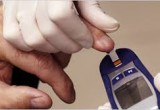Point-Of-Care HIV Rapid Testing Growing In Importance
Online, June 12, 2014 (Newswire.com) - The lab's Internet portal Medlab-Online.com offers its customers a broad range of high quality in-vitro diagnostic medical devices from a single source.
"The fast and accurate collection of vital signs, including ascertaining the patient's infection status, such as whether they are HIV positive or not, is frequently necessary. Be that in the emergency room or during care for acute patients," says Dr Ethan Wing, emergency physician at the London Road Community Hospital in Derby, UK.
"Because if it has to go quickly-for example, in the emergency room in a surgical indication-it is of great importance to determine the infection status of an unknown patient immediately and reliably. The Central Laboratory has, depending on the workload, processing times between half an hour and two hours. The organization of the emergency department is therefore often an extremely challenging task."
Novel and proven to be valid by studies,the immuneochromatographic detection method of high sensitivity and specificity makes it possible to make reliable statements regarding the presence of viral or bacterial infectious diseases from the blood of patients within a few minutes.
Especially foregrounded are possible HIV or Hepatitis C infections that might be present for which neither a vaccination nor a complete cure is currently available. It is particularly notable that a HIV rapid test eliminates time spent on sample preparation and the patient gains valuable time that would have otherwise been lost by involving the central laboratory. What-is-more, the hospital staff can modify their behavior accordingly, and can, in particular, be promptly given post-exposure prophylaxis if inadvertent contact with a potentially infected patient's blood has occurred.
Furthermore, in the domestic setting of the classic home test, point-of-care tests, such as pregnancy tests and blood glucose tests, administered by the patient, have been established practice for decades. The controversy is currently whether a HIV test kit, in this format, should be made available for everyone and whether it could help to curb the spread of the dangerous immunodeficiency disease.
The great advantage of a HIV home test is that it can be carried out in complete anonymity. The patient does not need to overcome inhibitions such as having to confide in an unknown person; it is estimated that one could reach a significant percentage of the 100,000 people in the European Union who currently are not aware of their HIV positive status. This would make it possible to prevent new HIV infections and allow affected people to start life-saving therapy faster.
Detailed information is available on the Internet at http://medlab-online.com/en/home-hiv-test


